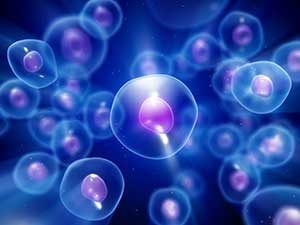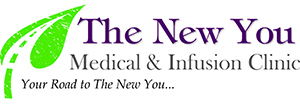Stem Cell Therapy for Hepatitis and Cirrhosis

If you removed two-thirds of your liver it would grow back! Disrupting the natural healing ability of our most regenerative solid organ is not easy, but chronic inflammation is a powerful foe.
Hepatitis is the inflammation of the liver caused by viruses, various enzyme and hormone imbalances, alcohol abuse, or long-term pharmaceutical use that degenerate liver tissue. If it's allowed to progress without intervention, hepatitis can develop into cirrhosis - the gradual replacement of healthy liver tissue with hardened scar tissue.
Stem cells are like the body's raw materials - they are the cells from which all other specialized function cells are made. Research shows that when delivered to the liver, stem cells can treat not only the symptoms but the root causes of hepatitis B , hepatitis C , autoimmune hepatitis , and cirrhosis.
Unlike surgery (which removes damaged tissue), regenerative medicine harvests live cells and injects them directly into damaged tissues, stimulating your own cells to regenerate themselves. Though the success rate will vary depending on your age, body type, genetics, injury severity, general health, and follow up care, the stem cells injected into your liver may continue producing human growth factors for weeks, sometimes even months.
To help your liver regenerate damaged cells and revive optimal function, find a Las Colinas hepatitis and cirrhosis stem cell specialist by calling (817) 203-2760 or contact The New You Medical & Infusion Clinic online.
How stem cells regenerate damaged liver tissue
Your liver cells are brimming with regenerative potential. They can be stimulated to regenerate damaged and scarred tissue, reviving functions you may have feared were lost for good with a biochemical nudge.
Mesenchymal stem cells (MSCs) are multipotent stem cells, meaning that they can become more than one type of cell. MSCs have several advantages over other types of stem cells. They are easy to obtain, multiply rapidly, and can be stored cryogenically without loss of function or success rate.2
MSCs for hepatitis and cirrhosis are most frequently extracted from the patient's own bone marrow,2,5,7 though MSCs can also be harvested from the patient's own fat or from donated post-birth umbilical cord blood.
Once your certified provider injects them, these MSCs dock next to your cells and release growth factors, cytokines, and chemokines, which then may:
- activate T-cells to secrete proteins
- prevent liver cell death2
- open up your blood vessels
- stimulate the growth of new blood vessels2
- move cells out of your blood vessels and into surrounding tissues
- reverse liver fibrosis2
- stimulate your cells to regenerate tissue
- inhibit your inflammation
- regulate your immune system
- enhance liver functionality2
These potent cells can disrupt the progression of autoimmune diseases, by morphing into new liver cells.
Research on stem cell therapy for hepatitis and cirrhosis
Decades worth of research has shown that MSCs can regenerate tissue damage caused by hepatitis B, hepatitis C, and cirrhosis.
One study that applied bone marrow-derived MSCs for stem cell treatment for hepatitis b-induced cirrhosis demonstrated a healthy increase in Treg cells (which monitor the immune system and prevent autoimmune disease) and a decrease in Th17 cells (pro-inflammatory agents). These biochemical changes significantly improved patients' liver function.5
Another study analyzed the efficacy of MSC's harvested from bone marrow to treat cirrhosis from hepatitis C . Researchers found a significant improvement in symptoms like jaundice , ascites, bleeding, and fluid accumulation in the lower limbs. This therapy also improved the liver function of patients with end-stage liver disease from hepatitis C.7
Stem cells can also be used to treat autoimmune hepatitis. Click here to learn more.
Risks and potential side effects of stem cell therapy
As with any medical procedure, results of stem cell therapy for hepatitis will vary from patient to patient depending on age, genetics, general health, condition severity, follow-up care, and environmental factors. Regenerative stem cell treatments may present contraindications with other medical conditions and/or treatments. Always consult your healthcare professional before deciding which treatment to try first.
As MSCs are extremely sensitive to their environment, concerns remain about whether or not they'll work once harvested, transferred, and administered into new tissues and organs. Researchers are working to determine whether these stem cells will behave differently in different parts of the body and whether they may regenerate undesirable tissue or tumors alongside healthy tissue.
As hepatitis is associated with an increase in hepatic cancer, the theoretical possibility of accelerating existing tumor growth is a concern when choosing bone marrow stem cell therapy.
Contraindications
Medications that can interact negatively with stem cell therapy include antifungal medications and calcineurin inhibitors. These substances can increase mortality and toxicity, or cause treatment failure and complications respectfully.1,4 Studies have also shown that cigarette smoke or nicotine can decrease the regenerative potential of MSCs.3
Several Chinese herbs have shown to enhance the differentiation and proliferation (increase) of MSCs.6 Your healthcare provider will let you know which herbs may complement or conflict with your stem cell therapy. He or she will also tell you if any of your health conditions prohibit you from stem cell liver treatment.
Is stem cell therapy FDA approved?
There is currently only one stem cell product on the market that is approved by the Food and Drug Administration (FDA): umbilical cord blood-derived hematopoietic progenitor cells (blood-forming stem cells) used for certain indications.
Professional judgment and expertise are needed when using stem cells for any therapeutic use, even umbilical cord stem cell therapy for cirrhosis. We urge anyone embarking on the use of these therapies to consult the national health databases to evaluate current information from clinical trials. The FDA website on human tissue should also be consulted to get its current evaluation of any therapy.
Reserve your appointment
It may be that your liver's regenerative powers just need a little nudge. Stem cell therapy may regenerate this fabulously resilient organ. To find a stem cell specialist in Las Colinas to learn more about hepatitis stem cell therapy and cirrhosis reversal using stem cell therapy, call (817) 203-2760 or contact The New You Medical & Infusion Clinic online.
Sources:
1. C, Girmenia, and Iori AP. "An update on the safety and interactions of antifungal drugs in stem cell transplant recipients." Expert opinion on drug safety 16.3 (2017): 329-339. Web. 7 Sept. 2018.
2. Eom, Young Woo, Gaeun Kim, and Soon Koo Baik. "Mesenchymal Stem Cell Therapy for Cirrhosis: Present and Future Perspectives." World Journal of Gastroenterology: WJG 21.36 (2015): 10253-10261. PMC. Web. 18 Oct.2018.
3. Greenberg, Jordan M., Carlos M. Carballosa, and Herman S. Cheung. "Concise Review: The Deleterious Effects of Cigarette Smoking and Nicotine Usage and Mesenchymal Stem Cell Function and Implications for Cell?Based Therapies." Stem Cells Translational Medicine 6.9 (2017): 1815-1821. Web. 7 Sept. 2018.
4. HL, Leather. "Drug interactions in the hematopoietic stem cell transplant (HSCT) recipient: what every transplanter needs to know." Bone marrow transplantation 33.2 (2004): 137-152. Web. 7 Sept. 2018.
5. L, Xu, et al. "Randomized trial of autologous bone marrow mesenchymal stem cells transplantation for hepatitis B virus cirrhosis: regulation of Treg/Th17 cells." Journal of Gastroenterology and Hepatology 29.8 (2014): 1620-1628. Web. 7 Sept. 2018.
6. Udalamaththa, Vindya Lankika, Chanika Dilumi Jayasinghe, and Preethi Vidya Udagama. "Potential role of herbal remedies in stem cell therapy: proliferation and differentiation of human mesenchymal stromal cells." Stem Cell Research & Therapy 7:110 (2016): n. pag. Web. 7 Sept. 2018.
7. Zhang, Yongting, et al. "Mesenchymal stem cells: potential application for the treatment of hepatic cirrhosis." Stem Cell Research & Therapy 9:59 (2018): n. pag. Web. 7 Sept. 2018.
The New You Medical & Infusion Clinic
Address
100 Grapevine HwyHurst, TX 76054
(817) 203-2760
https://www.newyoumedclinic.com/
Hours
Mon:
10:00 am - 6:00 pm
Tue:
10:00 am - 6:00 pm
Wed:
10:00 am - 6:00 pm
Thu:
10:00 am - 6:00 pm
Fri:
Closed
Sat:
Closed
Sun:
Closed

